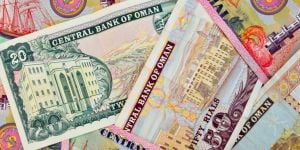
You've saved money for years for your moving abroad plans. Your visa has arrived, your bags are packed, your plane is ready, and so is your new life. But panic grips you on your first day in your host country: what if you haven't saved enough? Will you have enough money to live abroad? Here are some practical tips for a worry-free relocation.
Dealing with the fear of falling short of money in your expat country
Financial stress is entirely understandable when moving abroad. Initially, there's stress during the preparation phase. Expenses can pile up, sometimes compelling you to reconsider the whole project. Did you aim too high? The costs involved in a move to a foreign country can be daunting. Besides visa fees, potential school costs abroad, plane tickets, health insurance, and rent in a foreign country, certain expenses, like rent, often heavily impact your budget.
The host country's economic situation doesn't make things easier. What is the economic climate like? Is it easy to find a job? What are the working conditions for international students? Even if you move with substantial savings, you'll likely need to find a job. Spending several weeks or months in the host country without securing a job can fuel your fears, even if you still have enough resources to live without working. After all, you didn't move abroad to drain your savings, which aren't limitless. You feel more vulnerable abroad because you're not yet familiar with the norms: learning to count in the local currency takes time.
Learning to count in the local currency when shopping
What do your finances look like in the local currency? Is your currency stronger or weaker than that of your host country? Converting your money to the local currency is always a significant moment. It's advisable to have some local cash for the first few days. Bank cards, even those with international options, can be unpredictable. There are countless stories of expatriates stuck with an unusable card in their new country.
But how do you count in the local currency? Shopping can quickly become a source of stress. You don't understand the labels, don't know if the displayed price includes taxes, and struggle to compare prices per kilogram. You worry about making mistakes in your shopping, buying an overpriced product that's sold at a discount 300 meters away. Despite thorough online research, you'll need time to explore the area, find discount stores, opt for cheaper transportation methods, and perhaps even move if you find better-value housing.
To alleviate shopping stress and manage local currency, stop converting prices to your home currency. Doing so will only confuse you. Start with basics: 1 is always less than 10 or 20. Examine the labels: prices might not include taxes. In Japan, for example, prices are shown without taxes. The same applies to the US, where each state sets its own sales taxes.
How do you deal with your financial stress?
To ensure a serene move, start by assessing your situation: how much money do you have? What are your estimated monthly expenses in the host country? How long can you live without working? If your budget seems tight, don't hesitate to postpone your move. It's better to leave a few months later, well-prepared financially than to embark on an adventure in precarious conditions.
Depending on your profile (foreign worker, student), plan your move carefully. If you aim to work abroad, do you already have a job offer? What are the conditions of your work permit? Are you moving abroad to find a job? If you're a student, research your work conditions, including permitted hours, job sectors, and pay rates.
Keep a detailed expense log from the moment you arrive in your new city. Record all your expenses and keep receipts if necessary. Strict financial management helps you visualize your expenses and income, allowing you to adjust your budget if needed. This log also eliminates unnecessary stress: you have enough money to live abroad.
Having a financial emergency kit
Before moving abroad, prepare several “emergency kits”: the “first days/weeks” envelope, the “unexpected expenses” envelope, and the “return” envelope.
The "first days/weeks" envelope
This ensures you have cash immediately upon arrival. Follow general money recommendations and have local currency on hand while you set up your bank account. Even if you choose a neobank, make sure to carry local cash to cover initial expenses (public transport, food). Plan for at least one ot two weeks' worth of expenses, in case you encounter issues with your bank card.
The "unexpected expenses" envelope
Proper planning will prevent you from running out of money if your anticipated job doesn't materialize within the first few months. How much have you saved? How many months can you comfortably live abroad (rent, transport, food) without working?
The "return" envelope
Unexpected events can happen: job loss, accidents, health issues, accumulating low-paying jobs, and higher-than-expected education costs. Expatriation can be unpredictable. Depending on your situation, you might be eligible for state aid (unemployment insurance, for example). But if your situation worsens (your savings diminish significantly), consider whether you can afford to stay or if it's wiser to return home. Do you have enough for a plane ticket? The “return” envelope ensures a smooth return if expatriation doesn't go as planned. If everything goes well (as it often does), this envelope can boost your savings.



















